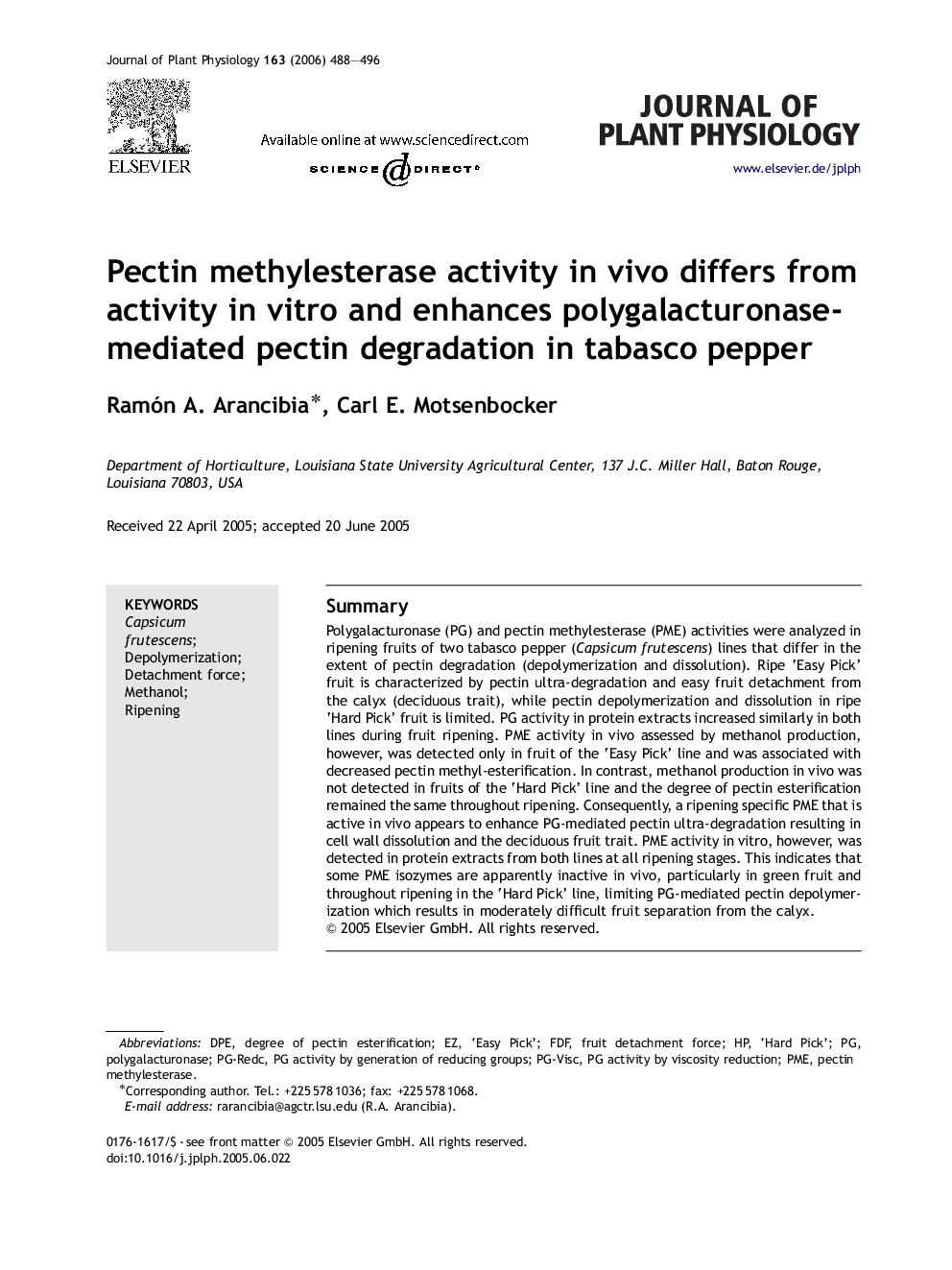| Article ID | Journal | Published Year | Pages | File Type |
|---|---|---|---|---|
| 2057756 | Journal of Plant Physiology | 2006 | 9 Pages |
SummaryPolygalacturonase (PG) and pectin methylesterase (PME) activities were analyzed in ripening fruits of two tabasco pepper (Capsicum frutescens) lines that differ in the extent of pectin degradation (depolymerization and dissolution). Ripe ‘Easy Pick’ fruit is characterized by pectin ultra-degradation and easy fruit detachment from the calyx (deciduous trait), while pectin depolymerization and dissolution in ripe ‘Hard Pick’ fruit is limited. PG activity in protein extracts increased similarly in both lines during fruit ripening. PME activity in vivo assessed by methanol production, however, was detected only in fruit of the ‘Easy Pick’ line and was associated with decreased pectin methyl-esterification. In contrast, methanol production in vivo was not detected in fruits of the ‘Hard Pick’ line and the degree of pectin esterification remained the same throughout ripening. Consequently, a ripening specific PME that is active in vivo appears to enhance PG-mediated pectin ultra-degradation resulting in cell wall dissolution and the deciduous fruit trait. PME activity in vitro, however, was detected in protein extracts from both lines at all ripening stages. This indicates that some PME isozymes are apparently inactive in vivo, particularly in green fruit and throughout ripening in the ‘Hard Pick’ line, limiting PG-mediated pectin depolymerization which results in moderately difficult fruit separation from the calyx.
